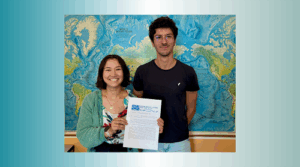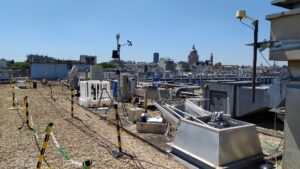Séminaire
The Atmospheres of Exoplanets: Windows Into Formation History and Habitability
Kevin Heng
Le LATMOS a le plaisir d’accueillir le Pr Kevin Heng, directeur du centre spatial et d’habitabilité de l’Université de Bern (spécialiste de l’analyse des données spatiales pour l’étude des atmosphères exoplanétaires).
Description
Exoplanet science is in an age of revolution. Building on the basic measurement of masses and radii of exoplanets, astronomers have now developed techniques for measuring spectra of their atmospheres. Interpreting these spectra using state-of-the-art Bayesian techniques yields posterior distributions of the chemical abundances and other atmospheric properties.
For gas-giant exoplanets, the inferred chemistry of their primary (inherited from the primordial nebula), hydrogen-dominated atmospheres offers hints on their formation history. For terrestrial exoplanets with secondary, outgassed atmospheres, atmospheric spectra offer a crucial window into their habitability and geochemical conditions.
In this talk, I will provide an overview of the use of traditional Bayesian (nested sampling) and machine learning (random forest) methods to interpret spectra from both ground- and space-based data. I will explain the classical machine learning method of the random forest as a type of Approximate Bayesian Computation (ABC) method, and elucidate how it may be used to perform information content analysis of spectra from the upcoming (2021) James Webb Space Telescope (JWST). When analyzing ground-based, high-resolution spectra, traditional Bayesian methods are infeasible and carry idealised assumptions; I will describe a recently developed method that combines cross correlations with machine learning.
I will end by sketching the Big Picture questions for the future study of exoplanetary atmospheres, including elucidating the nature of mini-Neptunes (which have atmospheres that are neither solely primary nor secondary), the role of geochemical cycles in sculpting the secondary atmospheres of rocky exoplanets (and influencing the existence of a habitable zone) and the path towards discovering extraterrestrial life via the remote detection of biosignature gases. Understanding geochemistry is critical as it is a source of false positives for biosignatures; whether a gas is a biosignature is strongly dependent on the background atmosphere.
Informations supplémentaires
En présentiel dans l’amphithéâtre Gérard Mégie (OVSQ – 11 bd d’Alembert – 78 Guyancourt)






